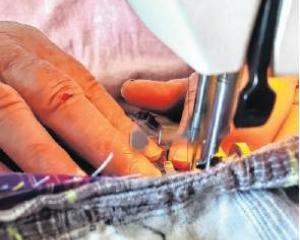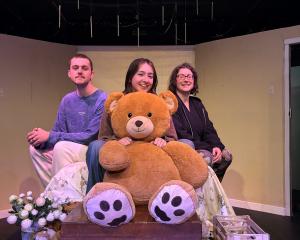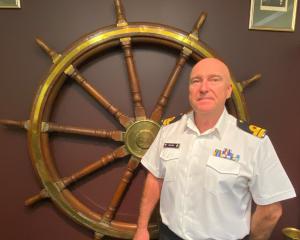
No matter where, when or how, the memory of those who died in service to their country is preserved on the Dunedin Roll of Honour at the Lost Generations room at Toitū Otago Settlers Museum.
The list of names on the walls of the sombre space is a roll call of mostly young men and women whose lives were cut short by war.
Recent upgrades to the room have added 600 names to the panels, which now list 3200 people who participated in conflicts ranging from the Second Boer War to the Vietnam War.
These names represent people who had a local connection within the geographical boundaries of the Dunedin City Council.
Four tablets have been newly installed in the room that enable searches by parameters such as conflict or name, as well as providing an alphabetical list.
Toitū Otago Settlers Museum curator Sean Brosnahan said the tablets replaced a set of books that were created in 2012.
While it had not been easy or financially practical to reprint books when there were additions or adjustments to the text, the new system is able to update information almost instantaneously.
This could include details such as photographs, life accounts or images of their graves provided by members of the public.
"So if people bring in a photograph or if they bring in a correction or add an extra name, we can make that adjustment."
Mr Brosnahan is researching detailed profiles for many of the names, using a wide range of sources — including service records and newspapers.
Many had only a short life before they died.
"A lot of times these guys never got a chance to get up to much."
Simple details such as which school they attended or whether they played rugby could be added.
"The Otago newspapers, from my observation, were much more assiduous about putting personal detail in the paper about the soldiers than I’ve found in other places around the country."
The aim was to have a personal profile for every name on the list, Mr Brosnahan said.
"But that is a pretty big job because there is 3200 names."
So far he had written over 600 profiles.
Exhibition developer William McKee has also researched many archives to find images for each of the people on the list, and about 70% of the names now have a photograph.
The war dead from Dunedin are buried in 589 cemeteries across 44 countries and many of the profiles have photographs of those cemeteries or their headstones.
Mr McKee said he and Mr Brosnahan had also developed 50 short interpretative videos that could be seen on some of the profiles.
"Once made, they go into the interactive Roll of Honour, but are also made for external viewing and education on YouTube," Mr McKee said.














